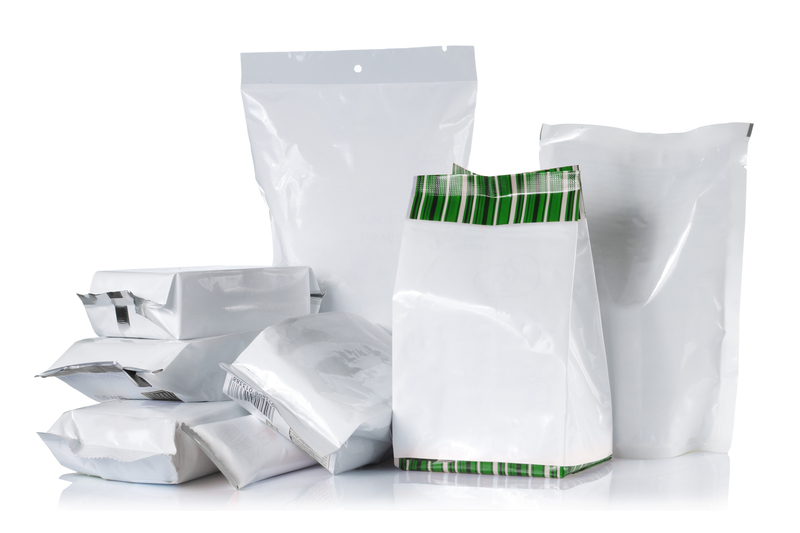Bulky Waste Items on a Budget: Wallet-Friendly Disposal Hacks
Dealing with bulky waste items is a challenge many households and businesses regularly face. From worn-out furniture and broken appliances to old mattresses and construction debris, these cumbersome belongings often clog up our spaces and may even incur high disposal costs. If you're looking for wallet-friendly disposal hacks for bulky waste items, you've come to the right place! In this comprehensive guide, we'll explore budget-conscious, practical, and environmentally responsible ways to get rid of large, unwanted items without draining your savings. Whether you're downsizing, moving, renovating, or just decluttering, these tips will make your clean-out smoother and more affordable.
Understanding Bulky Waste Items: What Counts?
Before we dive into cost-effective bulky waste removal hacks, let's clarify what actually constitutes a bulky waste item. Bulky waste refers to larger household items that can't fit in standard bins or bagged curbside collections. Examples include:
- Old furniture: couches, chairs, dressers, tables, bed frames
- Appliances: refrigerators, washing machines, ovens, air conditioning units
- Mattresses and box springs
- Large electronics: TVs, home theater systems, computer desks
- Cumbersome garden waste: branches, cut trees, fencing
- Renovation debris: carpets, tiles, drywall, bathtubs
- Miscellaneous: bicycles, exercise equipment, large toys
These items are generally too big or heavy for regular garbage collection, requiring special handling. With that in mind, let's explore how to tackle bulky waste disposal on a budget.

Why Is Bulky Waste Disposal Often So Expensive?
Traditional bulky waste disposal can be pricey for several reasons:
- Special removal equipment: Large items often need trucks or labor-heavy removal.
- Landfill fees: Municipal and private dumps charge per load or by weight.
- Environmental regulations: Certain items (like appliances or electronics) require regulated disposal or recycling due to hazardous materials, which raises costs.
- Convenience surcharges: Scheduling pickups outside of regular waste collection may add fees.
Luckily, there are numerous simple, sustainable, and affordable alternatives to explore. Let's jump into wallet-friendly ways to dispose of bulky waste items.
1. Leverage Free Municipal Bulky Waste Collection Programs
Many cities and towns offer free or low-cost bulky item collection services, either on a schedule or by appointment. These programs allow residents to place a limited number of large waste items curbside on specific days for collection.
- Check your local council or municipal website for bulky waste rules and collection dates.
- Book in advance: Some services have waitlists, especially after major holidays or large events.
- Review item restrictions: Hazardous materials, electronics, or construction debris may not be accepted.
Tip: If your city doesn't provide this service, check surrounding communities. Some municipalities allow non-residents to drop off bulky items for a small fee.
Pro Tip: Combine Forces with Neighbors
If your area allows a certain number of bulky waste items per household, team up with neighbors to maximize pickup efficiency. You might qualify for more pickups if you help consolidate items onto one curb, splitting costs for extra fees.
2. Donate Items in Good Condition
A wallet-friendly and sustainable solution for bulky item disposal is to donate unwanted furniture or appliances that are still in usable condition. Many nonprofit organizations are eager for such donations and may even offer free pickup.
- Charity shops: Many accept furniture, bedding, and working appliances.
- Religious and community organizations: Churches, shelters, and community centers often furnish housing for those in need.
- Reuse networks: Platforms like Freecycle, Craigslist, and Facebook Marketplace allow you to list large items for anyone to claim--and often pick up themselves!
Not only does this approach save you money, it's environmentally friendly and helps others in your community.
How to Prepare Donated Items
- Clean and sanitize furniture and appliances
- Disassemble, if possible, for easier removal
- Attach notes describing any minor defects or issues
3. Sell Bulky Waste Items Online
Turning trash into cash is one of the most wallet-friendly waste disposal hacks! If your items are gently used or have salvageable parts, consider selling them on secondhand marketplaces.
- Online classified ads: List on platforms such as Craigslist, eBay, OfferUp, Gumtree, or Facebook Marketplace.
- "Curb alerts": Place your item at the curb and post a "free" ad--someone looking for a bargain might pick it up quickly.
- Local swap groups: Join local buy/sell/trade pages on social media.
*Always include accurate dimensions, photos, and clear descriptions. If an item is heavy or requires disassembly, state this in your listing.*
4. Repurpose or Upcycle Old Items
You don't have to trash it--get creative! Many bulky items can be repurposed or upcycled into something useful or decorative. Upcycling saves money and keeps items out of the landfill.
- Turn old doors into tables or workbenches
- Transform bed frames into garden trellises or shelving units
- Use broken dressers as garage storage or tool organizers
- Convert appliance drums into fire pits or planters
Search Pinterest or YouTube for inspiration on upcycling furniture and appliances at home.
5. Use Bulk Item Drop-off Centers
Most communities have waste drop-off centers where residents can deliver bulky items directly. These facilities usually charge by the piece, load, or weight, but are often much more affordable than private junk hauling companies.
- Check fees before you go: Some items (fridges, TVs, hazardous waste) may have extra surcharges.
- Borrow or rent a truck for transport, if you don't have one.
- Bring proof of residency--some centers are for locals only.
Tip: Plan to go during non-peak hours to avoid lines and make unloading easier.
6. Schedule a Community "Bulky Waste Collection Day"
If your neighborhood regularly struggles with big-item buildup, petition your city or residential association to organize an official Bulky Waste Collection Day. By pooling resources (like a shared dumpster or large truck), you can usually negotiate lower rates from private waste collectors.
- Coordinate with property managers or local councils
- Encourage residents to participate: The more who join, the cheaper it becomes per household.
- Arrange volunteer help for seniors or those who can't move heavy items themselves.
Community clean-ups are great for both neighborhood pride and the environment!
7. Hire a Hauling Service (On a Budget)
When you truly can't DIY, it's time to book a professional bulky waste removal service. To keep costs low:
- Get multiple quotes from local hauling companies
- Ask about per-item or per-load pricing vs. flat rates
- Combine loads with friends to split costs and maximize truck space
- Sort items in advance to minimize labor time--most companies charge by the hour!
If using a national company seems too expensive, search for nearby independent haulers. They frequently offer lower rates and flexible service.
8. Explore Manufacturer and Retailer Take-Back Programs
Some retailers and manufacturers provide take-back programs for old or broken bulky waste items, particularly appliances and electronics. When you buy a new item, ask about free removal of the old unit.
- Major appliance stores often remove old refrigerators or stoves when delivering new ones.
- Mattress retailers may take away your old mattress for free or for a minimal fee.
- Electronics stores frequently organize recycling events for TVs, computers, and related items.
This is a hassle-free bulky waste disposal option, with environmental benefits, too.
Bonus: Scrap Metal and Appliance Recovery
If you're getting rid of metal-heavy bulky items--like old stoves, washing machines, or lawn equipment--contact your local scrap metal yard. They may even pay you for the metal value, putting extra cash in your pocket!
Bulky Waste Disposal Mistakes to Avoid
In your pursuit of wallet-friendly bulky item disposal, steer clear of these common pitfalls:
- Illegal dumping: Leaving items on sidewalks, vacant lots, or remote countryside is both illegal and environmentally destructive. It can result in heavy fines.
- Ignoring hazardous waste regulations: Items containing refrigerants, chemicals, or electronics should never be thrown out with regular trash. Always check local disposal laws.
- Paying for unneeded full-service removal: With a little research, you can often find free or cheap bulky waste collection that's just as convenient.
Eco-Friendly Emphasis: Recycle Where Possible
Responsible bulky waste management isn't just about saving money--it's about protecting the environment. Always recycle suitable items, like:
- Mattresses (foam and metal springs can be separated and recycled)
- Appliances (metals, wires, plastics)
- Electronics (recovered for rare and valuable materials)
- Scrap wood and metal (repurposed in construction and manufacturing sectors)
Many municipalities, recycling centers, and charities offer specific guidance for recycling large and unusual items. When in doubt, call ahead!
Quick Bulky Waste Disposal Hacks Recap
- Check municipal services for curbside collection days
- Donate or sell clean, working items
- Upcycle or repurpose furniture and appliances
- Visit drop-off centers for affordable self-delivery
- Schedule community disposal events to share costs
- Compare hauling services for competitive rates
- Utilize retailer take-back or recycling initiatives
- Look for scrap metal value in old appliances

Frequently Asked Questions About Budget-Friendly Bulky Waste Disposal
Can I leave bulky items on the curb any time?
No. Most cities have designated bulk pick-up days or require specific arrangements. Illegal dumping carries fines.
What if my bulky waste includes hazardous materials?
Contact your local waste authority. Items with chemicals, refrigerants, or electronics may need special handling.
Are there organizations that pick up furniture for free?
Yes, many charities and non-profits (such as Habitat for Humanity, Goodwill, Salvation Army) offer free pickup for usable items.
How can I avoid high appliance disposal costs?
Ask retailers about take-back programs when purchasing new appliances. You can also recycle appliances at metal yards for free or a small profit.
What is the cheapest way to dispose of a mattress?
Check for free council mattress collection, donate if in good condition, or recycle components at a local facility.
Conclusion: Save Money, Space, and the Planet
With a little planning and creativity, you can manage bulky waste items on a budget--keeping your wallet fat, your space tidy, and your conscience clear. From municipal collection and creative re-use to online selling and community initiatives, wallet-friendly disposal hacks give you more choices and control over your clutter. Next time you're faced with oversized household waste, refer back to this guide and make disposal a breeze!
Happy decluttering! If you found this article helpful, share it with friends or neighbors facing similar bulky waste disposal dilemmas.
